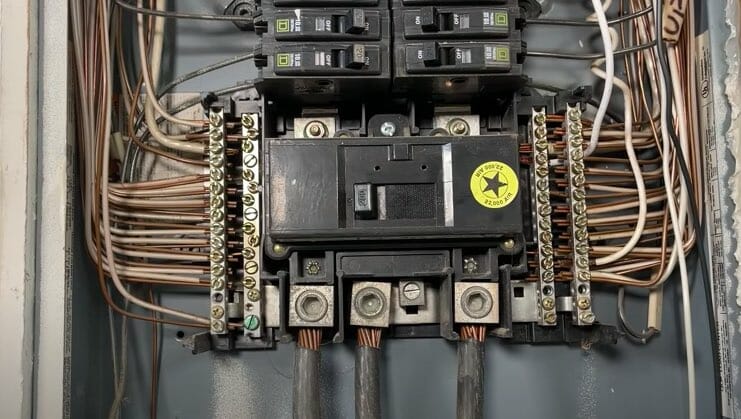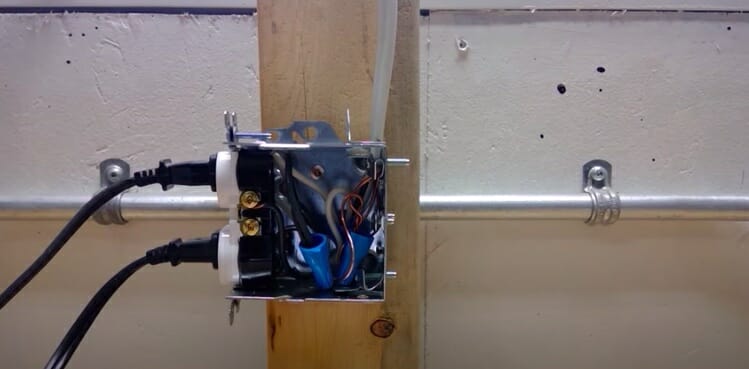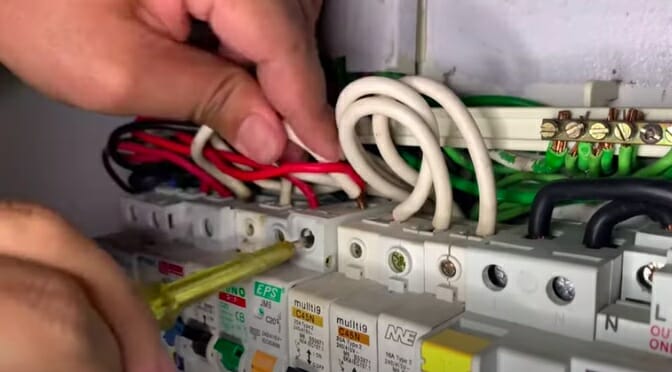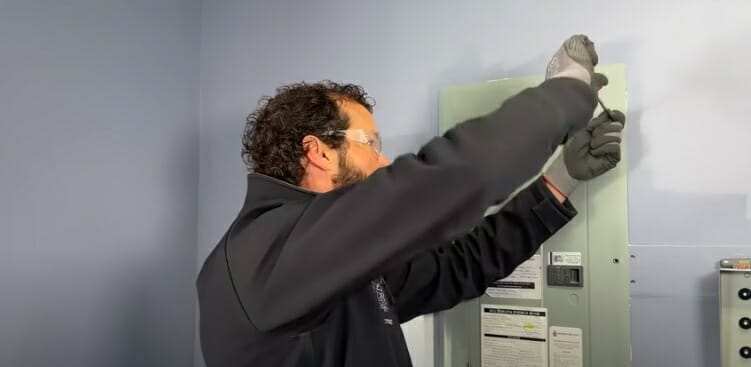Why is My Breaker Box Buzzing? (Common Issues)

It’s normal to be alarmed when you hear buzzing noises from your breaker box; I’ll explain why these noises happen and if you should worry.
Your breaker box is supposed to make a faint humming noise. Most people don’t notice the sound unless they’re within the immediate proximity of the breaker box. However, something else might be happening if the sound becomes a loud buzzing or sizzling noise. These noises serve as a warning for wiring issues and possible overloads in your breaker box.
I explain what the sounds coming from your breaker box mean below.
Faint, Gentle Humming Noise
Perhaps you heard a faint humming noise when you passed by your breaker box.
It’s perfectly normal for your breaker box to produce a humming noise. Circuit breakers regulate the flow of alternating currents. This rapidly moving current tends to produce gentle vibrations that may cause noise. It generally can’t be heard unless you’re within its immediate proximity.
It’s good practice to check your breaker box for any damage occasionally.
Open the circuit breaker and observe the electrical panel. Check all the wire connections and components. The circuit breaker is fully operational if there are no loose connections or visibly damaged components. However, if you notice the noise steadily increasing over time, consider hiring an electrician to check it out.
Continuous Buzzing or Sizzling Noise with the Occasional Spark
Loose or damaged wires are the most likely cause of the continuous buzzing.
The buzzing sound is produced when the wire discharges electric arcs through the exposed parts. Moreover, the current flowing through the loose or damaged wires can produce a spark gap. [1] This happens when the electricity makes contact with the oxygen in the air, which forms sparks. This continuous discharge of electricity builds up heat that may cause the circuit breaker panel to overload.
The continuous buzzing indicates that heat is building up within the circuit but is not enough to overload it.
Immediately check the circuit box for damages or call an electrician if any buzzing sound is heard.
Open the electric panel and check the wires for any damages, loose connections, or sudden sparks. Don’t touch the wires and other components with your bare hands. The wires can reach dangerously high temperatures and suddenly discharge electricity. Loose wires can cause a fire. Don’t come near the breaker box if you see smoke coming out of it.

Only try to access the electrical circuit breaker panel if you’re familiar with electrical repair and maintenance. Keep your distance and immediately call an electrician. The electrician will find and replace any damaged wires in the circuit box.
Loud Buzzing Noise with Frequent Sparks
The clearest and most dangerous signs that you have a bad breaker are loud buzzing noises and frequent sparks.
Circuit breakers have components designed to trip when they get overloaded. Trips cause the circuit breaker to shut itself off when it detects faulty connections or damaged components. This cuts off the electricity and prevents more damage to the circuit breaker electrical panel.

Loud buzzing noises mean your breaker box has overloaded but hasn’t tripped.
As discussed before, a breaker box builds up the heat when there are issues with the wires or components. Too much heat will cause the breaker box to overload. Usually, the circuit breaker will automatically trip if it is close to or has already overloaded.
A bad circuit breaker will fail to activate its trip. It will continue to build up heat and discharge electricity. This creates a loud, continuous buzzing noise that still is heard when you’re away from the circuit box.
Contact an electrician and replace the breaker as fast as possible when this happens.
Overloaded circuit breakers cause electrical fires if not immediately resolved. The electrician will inspect the electrical panel and replace faulty components and wires. Moreover, electricians are trained to spot any other underlying issues with your breaker box. They will address all other issues and hazardous components to prevent potential electrical accidents.
Causes of Breaker Box Buzzing
Preventing potential issues with your breaker box is the best way to stay safe, but what exactly should you look for?

The two most common issues with circuit boxes are loose connections and trip failures. The circuit breaker buzzing sound
can be produced by one or both issues. Identifying these two will help you keep a clear head when any problem arises.
Loose Wire and Component Connections
Loose connections are the leading cause of circuit breaker issues.
Gaps between wires or damaged cables between power sources tend to buzz and fizzle – sometimes even spark. These cause electrical panel buzzing noises due to electric arcs and spark gaps.
Use the buzzing noises to your advantage by treating them as an early warning system for your breaker box.
Call an electrician to replace the wires as soon as you notice the constant buzzing. Unresolved loose or damaged wires lead to more prominent issues in circuit breakers.
Trip Failures
Faulty trips are much harder to detect than loose wire connections.
People often only discover faulty trips once their circuit breaker fails to trip when overloaded. At that point, there’s only a small window to address the issue.
Older circuit breakers are more prone to experience trip failures.
Older circuit breakers struggle to maintain a steady current flow between new electrical appliances and systems. Their energy demand threshold may fall below the needed supply for newer systems. This can cause the trips to suddenly activate, even if there’s no danger of overheating or not working.
The best way to prevent trip failures is to replace older breaker boxes and regularly maintain them.
Need Help Calling a Professional Electrician?
You can usually contact your home insurance company. They can redirect you to their partnered electrical repair services. An example of a local insurance company is Evolution Insurance Company Limited.
Take a look at some of our related articles below.
- How to wire inverter to RV breaker box
- How to wire a shunt trip breaker
- How to test a circuit breaker with a multimeter
Reference
[1] spark gap – www.sciencedirect.com/topics/earth-and-planetary-sciences/spark-gaps
Video References
Everyday Home Repairs
Andrew Payce
TonaziTube
